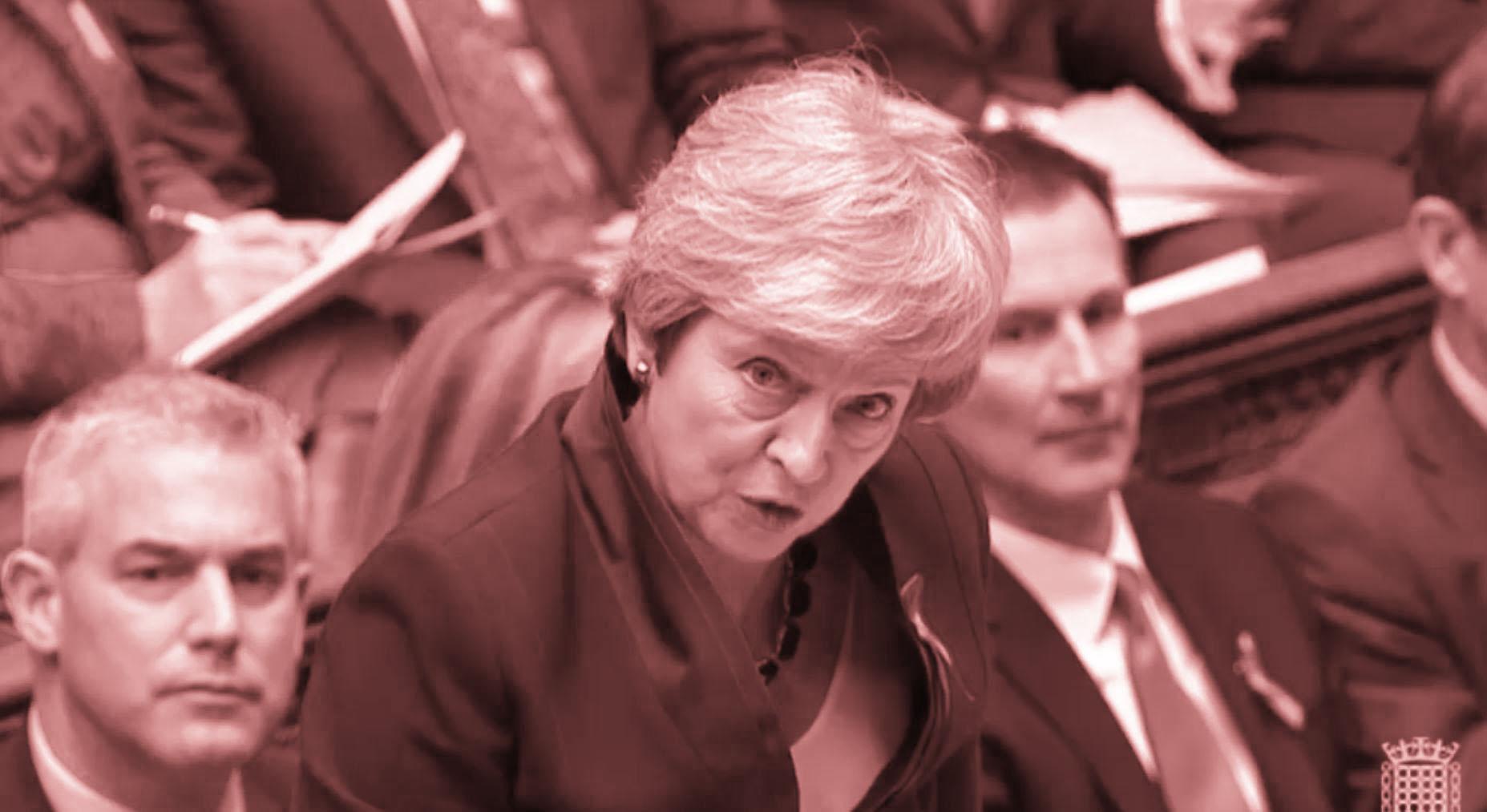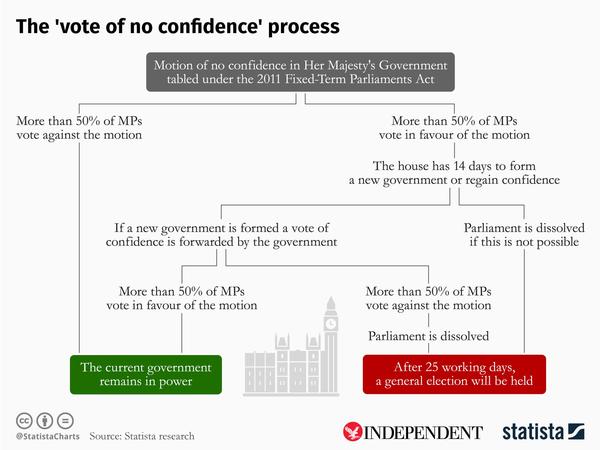Brexit: What happens next? From key dates and the meaningful vote to Theresa May's future as prime minister
Everything you need to know about Britain's EU withdrawal and what might happen in the coming days

Your support helps us to tell the story
From reproductive rights to climate change to Big Tech, The Independent is on the ground when the story is developing. Whether it's investigating the financials of Elon Musk's pro-Trump PAC or producing our latest documentary, 'The A Word', which shines a light on the American women fighting for reproductive rights, we know how important it is to parse out the facts from the messaging.
At such a critical moment in US history, we need reporters on the ground. Your donation allows us to keep sending journalists to speak to both sides of the story.
The Independent is trusted by Americans across the entire political spectrum. And unlike many other quality news outlets, we choose not to lock Americans out of our reporting and analysis with paywalls. We believe quality journalism should be available to everyone, paid for by those who can afford it.
Your support makes all the difference.We are entering one of the most uncertain periods in the modern history of Britain, with even the most experienced politicians and commentators unsure of what the immediate future holds.
This article will help you get to grips with some of the various outcomes from Brexit that the UK faces, and how we might get to them.
It will be updated regularly as the picture shifts day by day...
What are the key dates?
15 January: Theresa May suffers a devastating defeat in the Commons, after MPs throw out her Brexit deal by a record majority of 230 in the long-awaited ‘meaningful vote’.
Before 29 March: There are various scenarios that could occur. She may try to go back to the EU to gain further concessions from Brussels as long as a defeat is not heavy enough to have crippled her politically.
Otherwise, parliament may seek to use its powers to take control of Brexit and set a path forward. There may also be a move to extend the Article 50 process to allow more time to push through neccessary legisaltion or even for a second public vote.
29 March: Brexit Day. Under terms of Article 50 of the Lisbon Treaty, if a country triggers the withdrawal process from the EU, they have two years to try to conclude negotiations on how it happens before their membership automatically ends – regardless of whether those negotiations have been successful or not.
What happens after defeat for Theresa May's deal?
The big question to which no one knows the answer. There are lots of possibilities now that May’s plan has been defeated. She will have to return to parliament to set out her plans within three days. Here are the routes likely to be pursued or rejected early on...
Renegotiation: Despite official indications from Brussels, there are clear signals from the EU that there will likely be an opportunity to renegotiate after a defeat for Ms May's Brexit deal.
There are reports that there may even be an opportunity to re-open the withdrawal agreement to make changes to the hated 'Irish backstop'. What the UK would have to give in return for any change to the backstop is unclear however, and nothing will be given for free.
The prime minister pushes the deal to a commons vote... again: It may be that the PM does win some change to the withdrawal deal, that means she can go back to the commons and ask for it to be voted on a second time. Alternatively, a plunging pound and disruption to financial markets could also give May a reason to ask MPs to vote again and push through her deal in the national interest.
General election: Jeremy Corbyn has vowed to call a vote of no confidence in the government after a defeat for Theresa May's deal. But for this to be successful, lots of Tory MPs also need to vote for an election, and with their seats at risk and a left-wing Corbyn government waiting in the wings, they are not likely to do so...yet.
If Ms May tries to push for a no-deal Brexit some Conservatives have vowed to do whatever they can to stop it.

Statista (Statista) What are the alternatives to May's deal?
Now that it appears the PM’s strategy is dead, other possibilities have started to arise...
A second referendum: There will at some stage be a big push for a new referendum. The Independent has campaigned for the public to have a Final Say, with more than one million people signing its petition. The People's Vote campaign has galvanised the support of politicians, celebrities and millions of others across the country.
The new referendum would, however, have to be secured through a vote in the House of Commons and it appears that there is no majority for it at this time. Lots of Conservatives are opposed. Labour appears to be moving towards possibly backing one, but the party is split and Mr Corbyn is said to be against the idea. Even if Labour does back it, there are likely to be up to 20 of the party’s MPs who still vote against it, because their constituents so heavily backed leaving the EU that it would risk them being ousted at the next election.
Time could change this situation. As other possible outcomes are whittled away and the prospect of an economically damaging no-deal Brexit looms, more MPs may feel compelled to back a new referendum. The question of timing will be critical. Some backers feel the issue should be pushed to a commons vote, as an amendment to the “meaningful vote”, fearing that waiting will mean other outcomes take hold and become more likely. Others say if the vote is brought to the commons too soon, without enough support, and it falls – then supporters will lose their only chance of making it happen.
There is also not a consensus on what the question should be in a new vote – in or out, May’s deal or no deal, no deal or Remain. Some suggest a three-way vote on May's deal, no-deal and Remain, with the option receiving the fewest votes being knocked out and votes redistributed, as in the “alternative vote” electoral system.
Even if a proposal for a new referendum is passed, there is every chance Leave could win again, of course.
Plan B (Norway): There are those – including some in cabinet – who believe that once the deal is ditched the best plan would be for the UK to enter a Norway-style arrangement with the EU. This would either be temporary until a wider trade agreement can be arranged or a permanent solution. It would mean leaving the EU, but staying in the single market. A “Norway-plus” route could also see the UK remaining in the customs union.
But this is likely to enrage half of the Tory party in parliament, and probably all of the more Brexitish membership, as a less than full break from Brussels. It also does not end “free movement”, risking a backlash from Leave voters for whom immigration was the key issue in 2016.
An extension to the Article 50 period: The EU has indicated that the 29 March Brexit day could be postponed, but only if there is a set course of action to postpone it for. In other words they could delay it for a new referendum or an election. It is not clear if they would do it for a late renegotiation.
No deal: This is the default. After a defeat for May’s deal and if government and MPs do, or are able to do, nothing else, then on 29 March Britain will fall out of the EU with no deal in place. Many MPs are looking for ways to stop that from happening.
Will Theresa May leave Downing Street?
It remains unclear whether the prime minister can continue after her deal with defeated by such a humiliating margin. She is expected to survive Jeremy Corbyn's no-confidence motion, but in order to win support she could soften her proposal to reflect a policy more in line with the Norway deal - something many Labour MPs have openly backed.
Theresa May survived a vote of no confidence in December by 200 to 117, rebel MPs are not allowed to challenge the PM through the party's structures again for another year.
It means if Ms May leaves Downing Street, it will now either by a result of her own decision that she cannot continue, a cabinet insurrection could render her position politically untenable and she may feel there is no other option but to leave Number 10.
In an attempt to persuade MPs to back her in the no confidence vote, however, the prime minister told her colleagues she knew they did not want her to lead them into the 2022 general election - signalling she will stand down before then.
Subscribe to Independent Premium to bookmark this article
Want to bookmark your favourite articles and stories to read or reference later? Start your Independent Premium subscription today.
Join our commenting forum
Join thought-provoking conversations, follow other Independent readers and see their replies
Comments